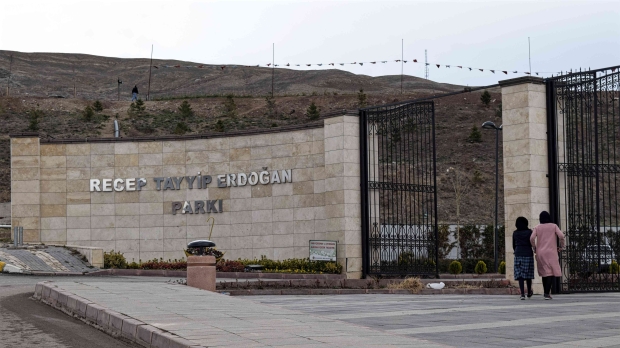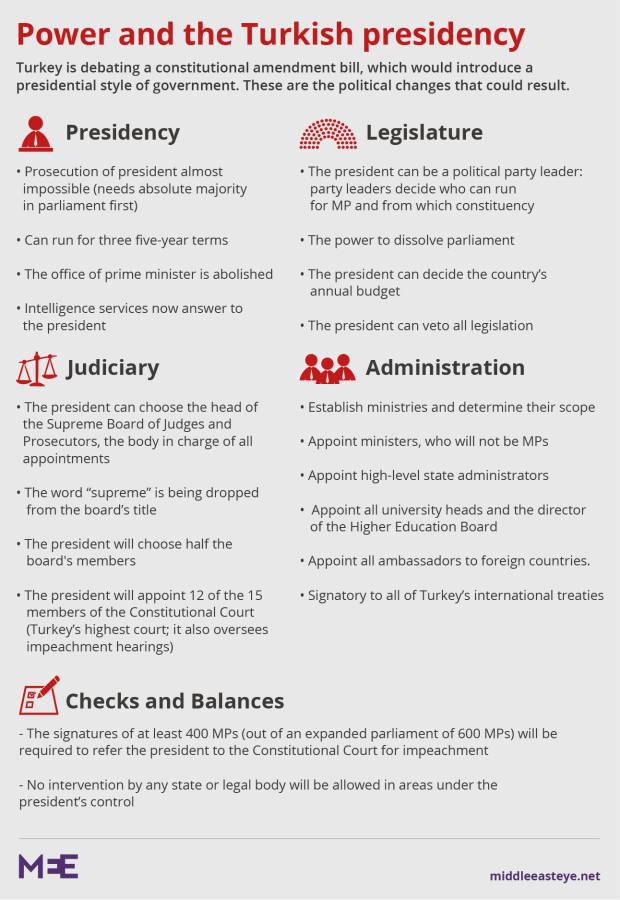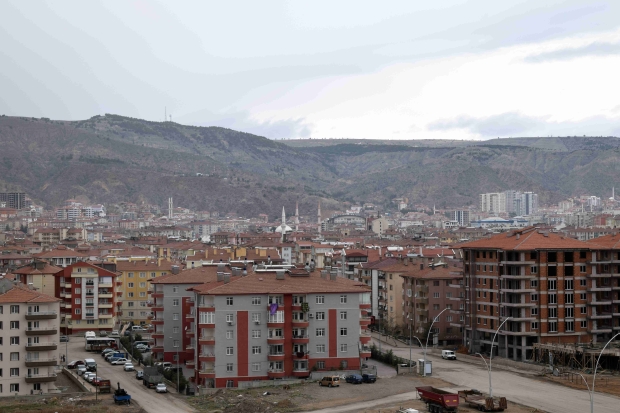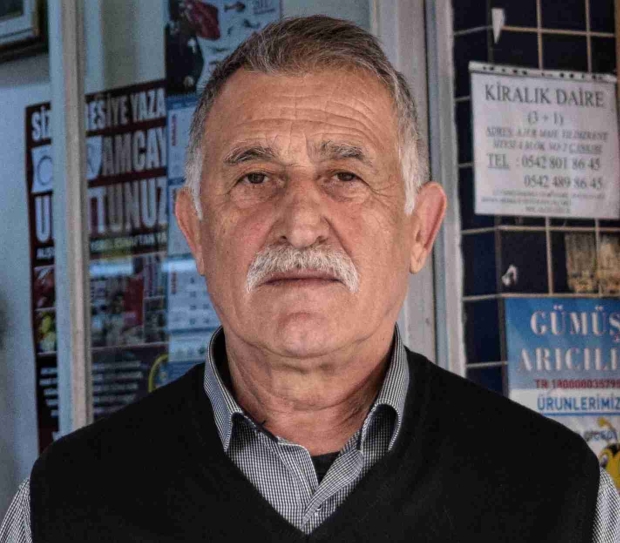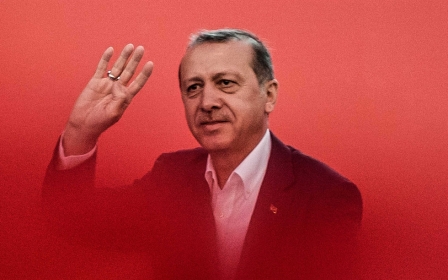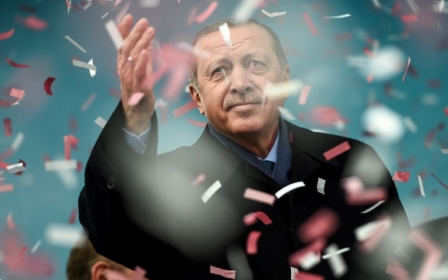Turkey's future: Cracks appear in Erdogan’s heartland
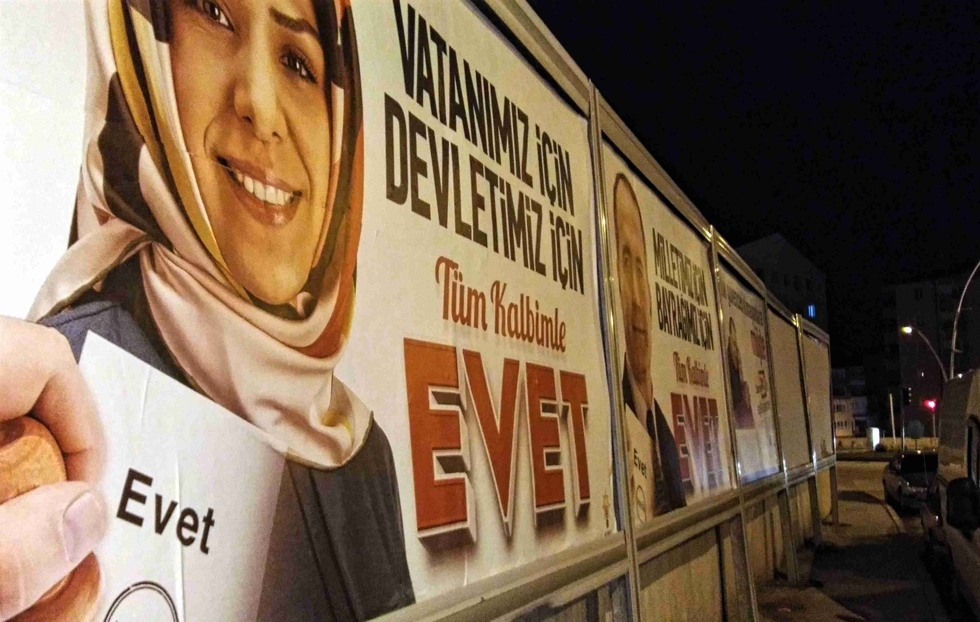
CANKIRI, Turkey – There are few posters supporting the referendum campaign of President Recep Tayyip Erdogan on the streets of this central Anatolian town.
Cankiri is the sort of place where parks are named after Erdogan and rabia, the four-fingered salute that has become the call sign for his supporters.
Such is the popularity and pervasiveness of the Turkish president and his Justice and Development Party (AKP) in this town of 92,000 that supporters don’t feel the need to campaign strongly in what they increasingly see as their fortress.
Cankiri is one of the most bankable regions for the party: it polled 69.1 percent in the last general election in November 2015. Even during its worst nationwide showing in June 2015 - when it failed to form a majority government - the AKP won 59.4 percent in Cankiri. And in the presidential election of 2014, when voters directly elected the president for the first time, Erdogan won 73.69 percent in Cankiri compared nationally to 51.79 percent.
It appears unlikely then that the town will vote against Yes - but it also appears unlikely that Erdogan and the AKP will enjoy a convincing victory both here and nationwide.
Resentment at post-coup purge
Nigar is a housewife who is a registered member of the AKP and has supported it since its formation, due mainly to its Islamist roots.
As with the rest of Turkey, she – and Cankiri - seems intent on casting a vote about the general state of country, as opposed to the actual purpose behind the referendum itself.
Last year Cankiri was declared the province with the least air pollution in Turkey - but even this platitude has become the butt of jokes among residents.
Nigar told MEE that the distinction had only been earned because of a lack of industry in the area. As a result, Cankiri youth have always been drawn towards careers in the military or civil service.Cankiri has also been hit hard by the purge of alleged followers of Fethullah Gulen, a US-based Islamic preacher. Ankara alleges Gulen was behind last summer’s failed coup: he and his followers reject the charge.
'Why is it only the poor and helpless that are being put in jail or dismissed? Why is no one with power and position paying the price for their involvement?'
- Nigar, housewife
The government subsequently arrested around 40,000 people and dismissed or suspended more than 125,000 from their public and military sector jobs. Most residents in Cankiri know someone who has been directly affected.
Nigar is afraid to speak after seeing people rounded up in the post-coup crackdown. Her faith in Erdogan and the AKP has been diluted by what she considers the unfair nature of the purge.
“If the hoca [preacher, a reference to Gulen] was so bad, why were they all friends with him and praising him all the time?” she asks.
“Why is it only the poor and helpless that are being put in jail or dismissed? Why is no one with power and position paying the price for their involvement? Is it only the poor who are not allowed to be fooled?”
Backlash amid rival MHP
If one group may benefit from discontent then it’s the dissident faction within the Nationalist Movement Party (MHP).
Before the emergence of the AKP in 2002, Cankiri was often called an MHP fortress, especially when it was led by its founder Alparslan Turkes.
And while the AKP has swept up the votes in national elections, the MHP, which is to the right of its rival, has done well in local municipal elections.
There are now strong stirrings of an MHP grassroots revival, resulting from a showdown between Devlet Bahceli, the incumbent chairman, and dissident leaders.
The first item on the agenda for the rebels? Vote No in the 16 April referendum to express their displeasure at Bahceli’s perceived betrayal of the party.
Mithat Kalayci, a retired civil servant and a staunch MHP supporter, told Middle East Eye that he was determined to vote No and so were most of his friends, who also backed his party.
“Many of my MHP-supporting friends, who in some of the past elections voted for the AKP for the sake of the country, are now very upset at both the AKP and Bahceli and will not support this plan of theirs.”
Omer, an active member in MHP politics and a car parts trader, told MEE that the only MHP supporters voting Yes were the handful of Bahceli loyalists who were administrators at the local party offices.
“Around 30-40 percent of Cankiri’s population are MHP supporters at heart and most will vote No, if only to oppose Bahceli,” said Omer, who asked for his surname to be withheld for fear of retribution.
“What changed in 10 months, that he went from being against the granting of so much power to one man to becoming a supporter? We are not fools and we will not be manipulated to further his personal gains.”
Cankiri: Bellweather for Turkey?
But despite opposition, the AKP still retains strong support in Cankiri.
The town is a good bellwether for what the central Anatolian heartland – the core support for Turkey’s centre-right parties – feel about the dominant centre-right party of the day.
Hamdi Ozturk, in his mid-70s, told MEE that “infidel leftists” were out to harm Erdogan and Turkey.
“Erdogan will make Turkey twice as good if he has his way. Everything else is lies being spread by infidel leftists,” said Ozturk. “Look at everything he has managed to do already.”
'Erdogan will make Turkey twice as good if he has his way. Everything else is lies being spread by infidel leftists. Look at everything he has managed to do already'
- Hamdi Ozturk, AKP supporter
And Bahadir, an MHP supporter who has to conceal his party loyalty because he works in the AKP-run Cankiri municipality, told MEE that the AKP would try its best to buy future votes by awarding non-existent jobs.
“There are hundreds of people on the payroll in the municipality who never even come to work. They don’t even have job descriptions,” he said.
Bahadir added that the lack of visible campaigning in Cankiri didn’t mean that there was no activity behind the scenes
“They [the AKP-run municipality] also rent out a lot of their properties to groups organising activities for housewives. They even arrange free-of-charge inter-city trips and other entertainment for these women. They then look to them to convince their families to vote for the AKP.
“Look at the rally the prime minister attended here the previous week. Almost 90 percent of the crowd were women.”
But according to Omer, the AKP has had its heyday as the premier force of Turkey’s centre-right politics.
“Of course the AKP will win in Cankiri but the win will only be in the low 50s,” he predicted.
“If it can only manage 52 or 53 percent in Cankiri, I think No might well win across the country."
New MEE newsletter: Jerusalem Dispatch
Sign up to get the latest insights and analysis on Israel-Palestine, alongside Turkey Unpacked and other MEE newsletters
Middle East Eye delivers independent and unrivalled coverage and analysis of the Middle East, North Africa and beyond. To learn more about republishing this content and the associated fees, please fill out this form. More about MEE can be found here.


